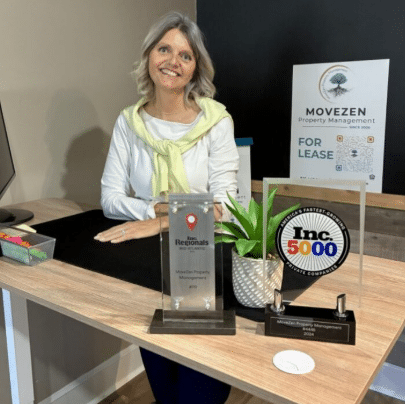In recent years, a growing number of city dwellers have embraced backyard chicken keeping, driven by desires for fresh eggs, sustainable living, and—increasingly—protection from volatile egg prices. With retail egg prices reaching historic highs of around $6 per dozen in 2025 (nearly double what consumers paid just a year earlier), the financial appeal of producing eggs at home has never been stronger.
However, for renters, the path to urban chicken keeping involves unique challenges. This guide offers essential advice for tenants looking to join the urban chicken movement while maintaining good relationships with landlords and neighbors.
Get a Free Virtual Rental Evaluation Plus a Custom Cost Quote
Why Urban Chicken Keeping Is Trending
The surge in egg prices, driven by multiple avian influenza outbreaks over the past decade, has made self-sufficiency increasingly attractive. According to USDA forecasts, retail egg prices are expected to increase by 41.1% in 2025 alone. Beyond economics, many urban residents cite benefits including:
Renters’ Considerations Before Getting Chickens
Before approaching your landlord or property manager, carefully consider these factors:

Legal Considerations
Municipal regulations: Many cities have specific ordinances regarding chicken keeping, including:
Lease restrictions: Review your lease for clauses regarding pets, livestock, or property modifications
HOA regulations: If applicable, check homeowners association rules
Practical Considerations
Space requirements: Even the smallest chicken setup requires at least 10-20 square feet of outdoor space
Neighbor proximity: Consider how close neighbors might be affected by sights, sounds, or smells
Time commitment: Chickens require daily care and regular coop maintenance
Long-term plans: Chickens can live 5-10 years—longer than many rental agreements
How to Get Landlord Approval
Prepare a Detailed Proposal
Create a professional document that addresses:
Address Common Landlord Concerns Proactively
|
Concern |
Mitigation Strategy |
|
Property Damage |
Propose a designated area away from structures; offer additional security deposit |
|
Odors |
Detail your cleaning schedule; explain that properly maintained coops have minimal odor |
|
Noise |
Emphasize that hens (not roosters) make minimal noise—less than dogs or children |
|
Pests/ Predators |
Outline secure feed storage and predator-proof coop designs |
|
Liability |
Offer to add chicken-specific insurance coverage if necessary |
|
Neighbor Complaints |
Suggest neighbor communication plan; offer to share eggs |
Propose a Trial Period
Suggest a 3-6 month trial period with:
Offer Incentives
Consider offering:
Success Stories and Approaches
The Compromise Approach: “My landlord was hesitant until I showed him my mobile coop design—a small, attractive structure on wheels that could be moved around the yard to distribute fertilization and prevent any single area from becoming messy. The mobility also meant no permanent installation or property changes.”
The Benefit-Highlighting Approach: “I emphasized how my chickens would help with pest control in the garden areas, produce fertilizer for the landscaping, and actually improve the property. I offered to maintain not just my backyard but also help with some of the common area landscaping using the chicken-produced compost.”
The Professional Presentation: “I created a detailed presentation with photos of the specific, high-quality coop I planned to use, breeds selected for quiet behavior and good egg production, and care protocols including winter preparations. The professional approach showed my landlord how seriously I took the responsibility.”
Property Management Frequently Asked Questions (FAQ)
Final Tips for Success
- Start small: Begin with 2-3 hens to demonstrate responsibility
- Choose quiet breeds: Buff Orpingtons, Plymouth Rocks, and Easter Eggers are known for quiet demeanor
- Invest in quality: A well-built, attractive coop will ease aesthetic concerns
- Document everything: Keep written records of all agreements
- Build community support: Engage neighbors positively before approaching your landlord
- Have a backup plan: Know where you could rehome chickens if necessary
By approaching urban chicken keeping thoughtfully and professionally, even renters can join this growing movement toward self-sufficiency and sustainable living. As egg prices continue to fluctuate with ongoing supply challenges, the humble backyard chicken might just become the urban renter’s unexpected ally in food security. To read more, visit How much eggs cost every year since 1980—in one chart.










